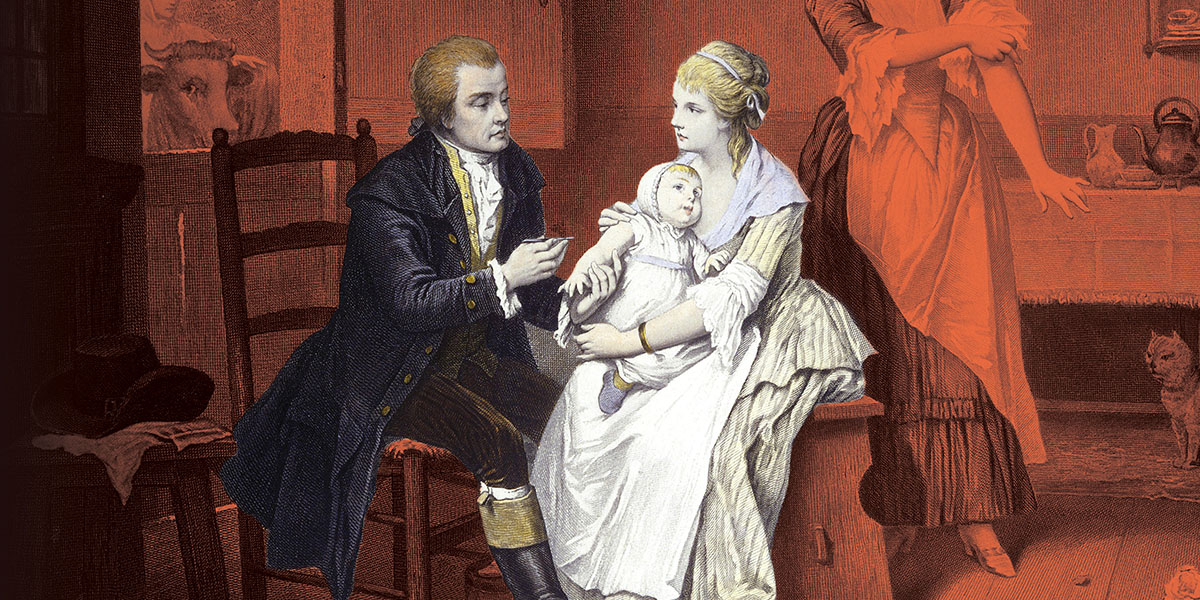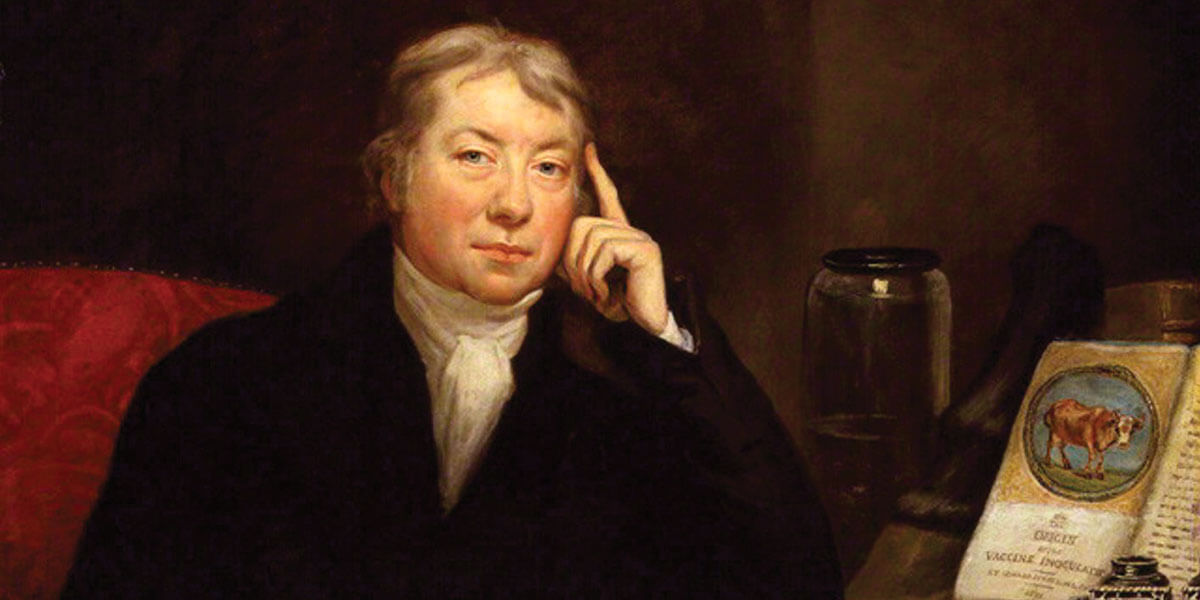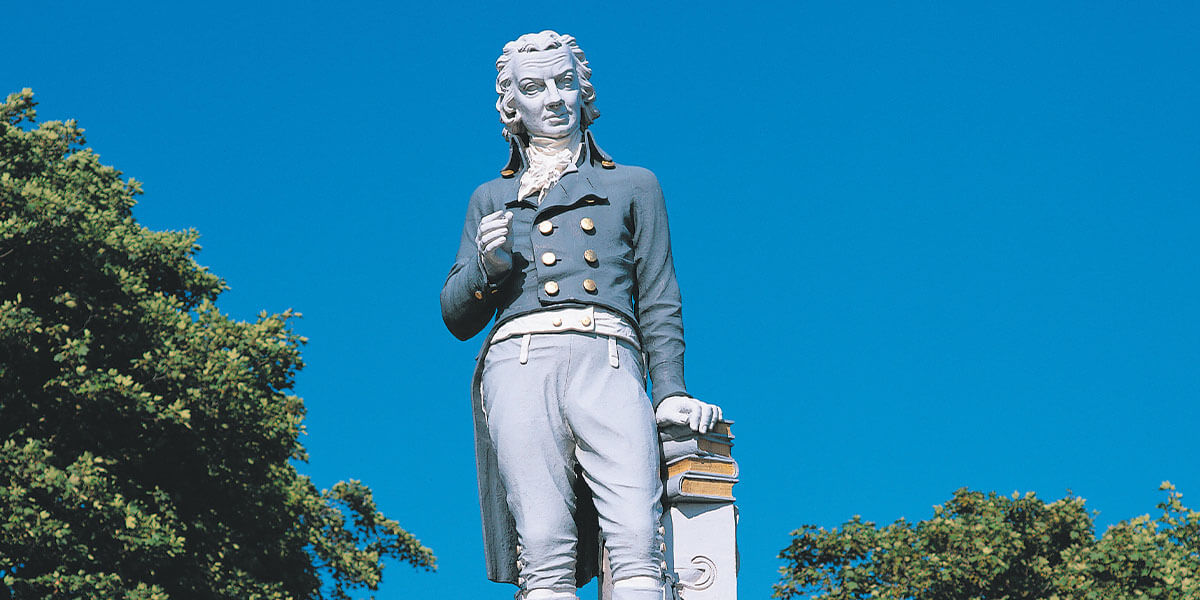Discover the legacy of Edward Jenner and the immeasurable impact his vaccine has had on the world.
It is hard to overstate the impact that Edward Jenner had on the world when he developed his pioneering vaccination process, the first of its kind. In doing so, Jenner provided a safe and effective protection against smallpox, a disease that had ravaged the world for centuries, and was one of the United Kingdom’s most prominent health problems at the time. Edward Jenner’s groundbreaking work paved the way for many more life-saving vaccines.

Before Jenner’s vaccine, the only protection against the deadly disease of smallpox was variolation – a method used for centuries in China, India and Africa that eventually reached Europe in the 1700s. This involved using a needle or sharp point to introduce pus from a smallpox lesion into a healthy person, usually resulting in only a mild case of smallpox, after which the person would be forever immune. Although often effective, this method was risky.
At the time, some believed that dairymaids couldn’t catch smallpox as they were frequently exposed to cowpox, a largely harmless virus carried by cows. Whilst many largely dismissed the observation as folklore, Jenner began to develop his own theory based on this assumption.
Jenner thought that by purposely infecting a healthy person with cowpox, their body would react by clearing the disease and become immune to smallpox as a result. Jenner felt compelled to put this theory to the test. Taking the pus from the cowpox spots of a dairy maid, Jenner injected it into the arm of a young boy who had never contracted smallpox. Shortly afterwards, the boy contracted a mild case of cowpox. Once recovered, he was deliberately exposed to smallpox, but did not catch the disease. The experiment had worked. Jenner called his pioneering process a vaccine, based on the Latin word ‘vacca’ for cow.
With the trial a success, Jenner spent his remaining years dedicated to refining his methods and ensuring the world had access to the vaccine. He published his research in 1798 and fought vehemently to ensure that vaccination was freely available to all in the UK.
Naturally, such efforts took up much of Jenner’s time, leaving him unable to practise as a doctor. Fortunately, his sacrifices didn’t go unnoticed by those in power and the government rewarded him financially in exchange for his time. In 1809, Jenner was also made an honorary member of the Geological Society.

In 1840, some 17 years after Jenner’s death, the UK parliament passed the Vaccination Act, which effectively outlawed the process of variolation. Meanwhile, an additional Vaccination Act in 1853 made vaccination compulsory for all infants under three months of age, with the threat of a heavy fine or even imprisonment for those that didn’t abide. Another revision came in 1867 that extended the compulsory vaccination requirement to those aged 14 and under.
Despite such moves to prevent widespread outbreaks from occurring, the UK experienced what historians dubbed ‘The Great Smallpox Pandemic’ in the 1870s, the last major smallpox pandemic in Europe, thought to have been sparked by unvaccinated soldiers and prisoners of war during the Franco-Prussian War. The concurrent introduction of mandatory smallpox vaccinations around this time helped to counteract this spike in smallpox cases and the UK dealt with the outbreak far more effectively than European nations that hadn’t enforced such a stringent vaccine law.
As Jenner’s vaccine remained an effective method of preventing smallpox, cases of the disease in the UK were rare throughout the early twentieth century, aided by increasingly inclusive government mandates necessitating vaccination (four amendments took place between 1871 and 1907). In keeping with this trend, natural smallpox cases were eradicated in the UK in 1934. Following a notable anti-smallpox campaign, the World Health Organization was finally able to declare the global eradication of smallpox in 1980, making it the first infectious disease eliminated through human efforts. Jenner’s significant contribution to immunology undoubtedly made this possible and we proudly celebrate his work and immeasurable legacy.

Since 2020, the term ‘vaccination’ has become a regular part of the global lexicon, having particular relevance with the onset of the COVID-19 pandemic. It is clear Edward Jenner’s contribution lives on in the health of the nation and the world. Jenner’s influential and innovative ideas helped shape the vaccines of today, and many consider him one of the foremost medical pioneers of his generation, crediting him with saving more lives than any other person has in history.
For further information on Edward Jenner and his remarkable journey to creating the smallpox vaccine, visit the Science Museum website to find out more.






